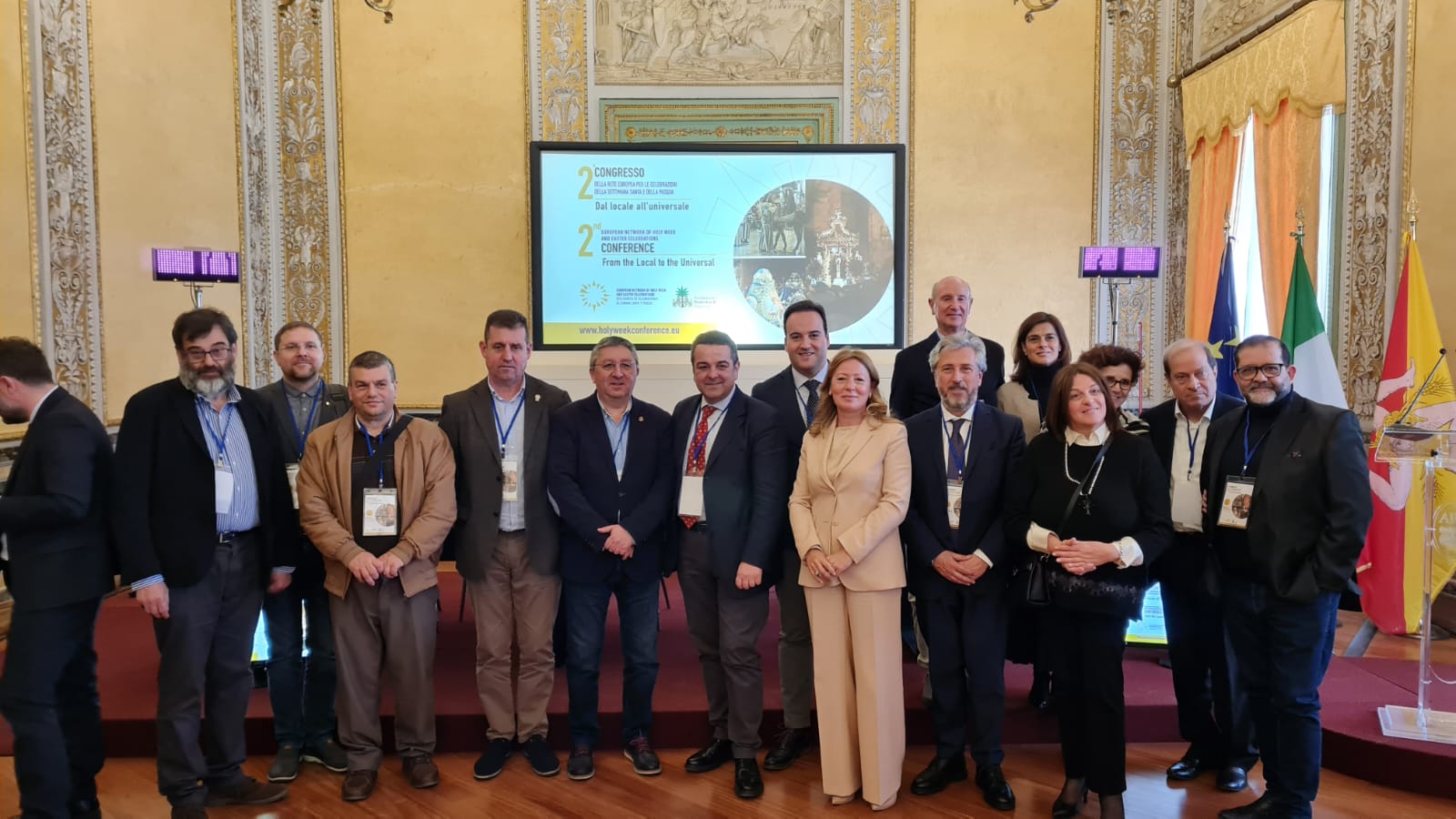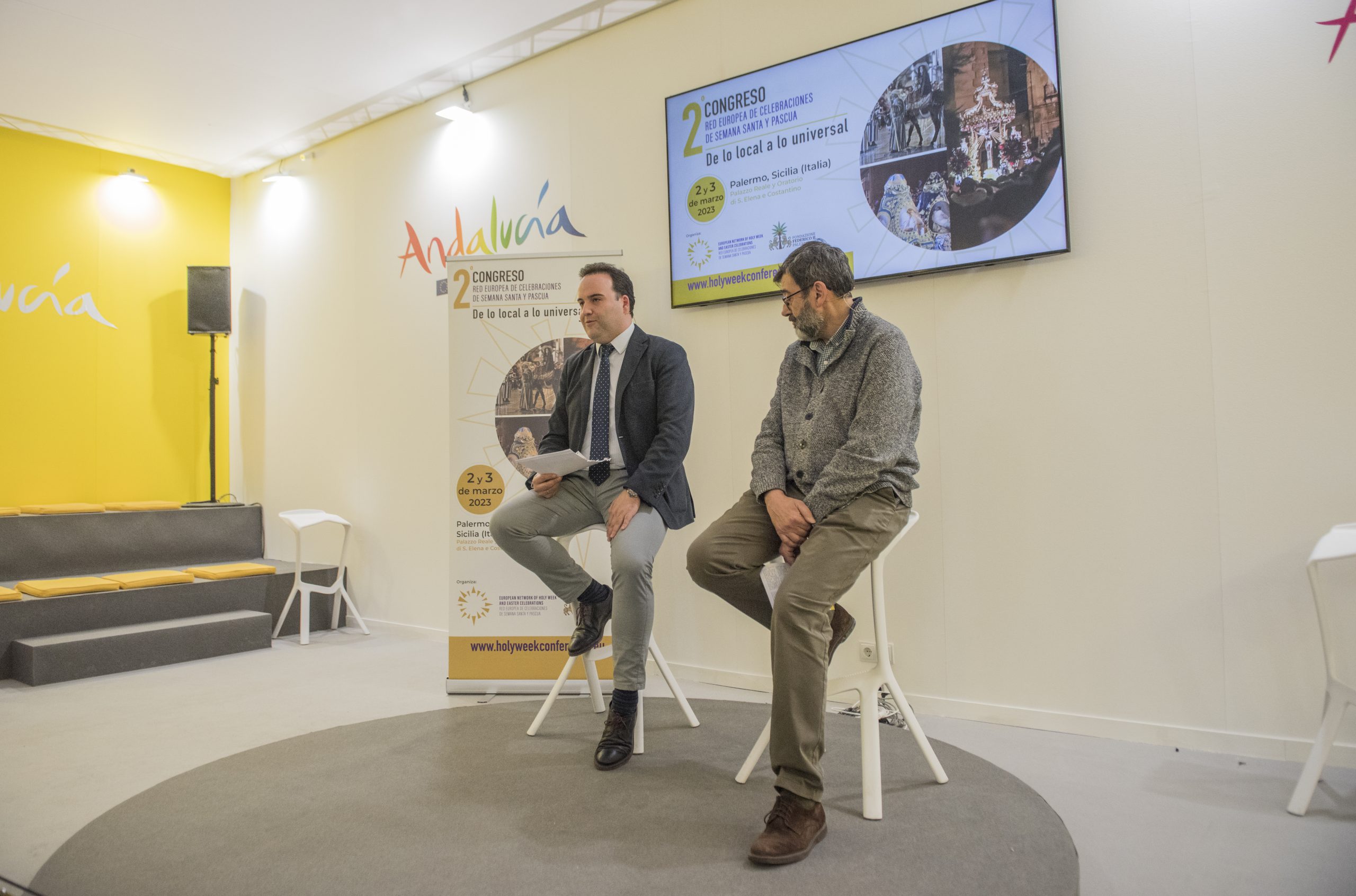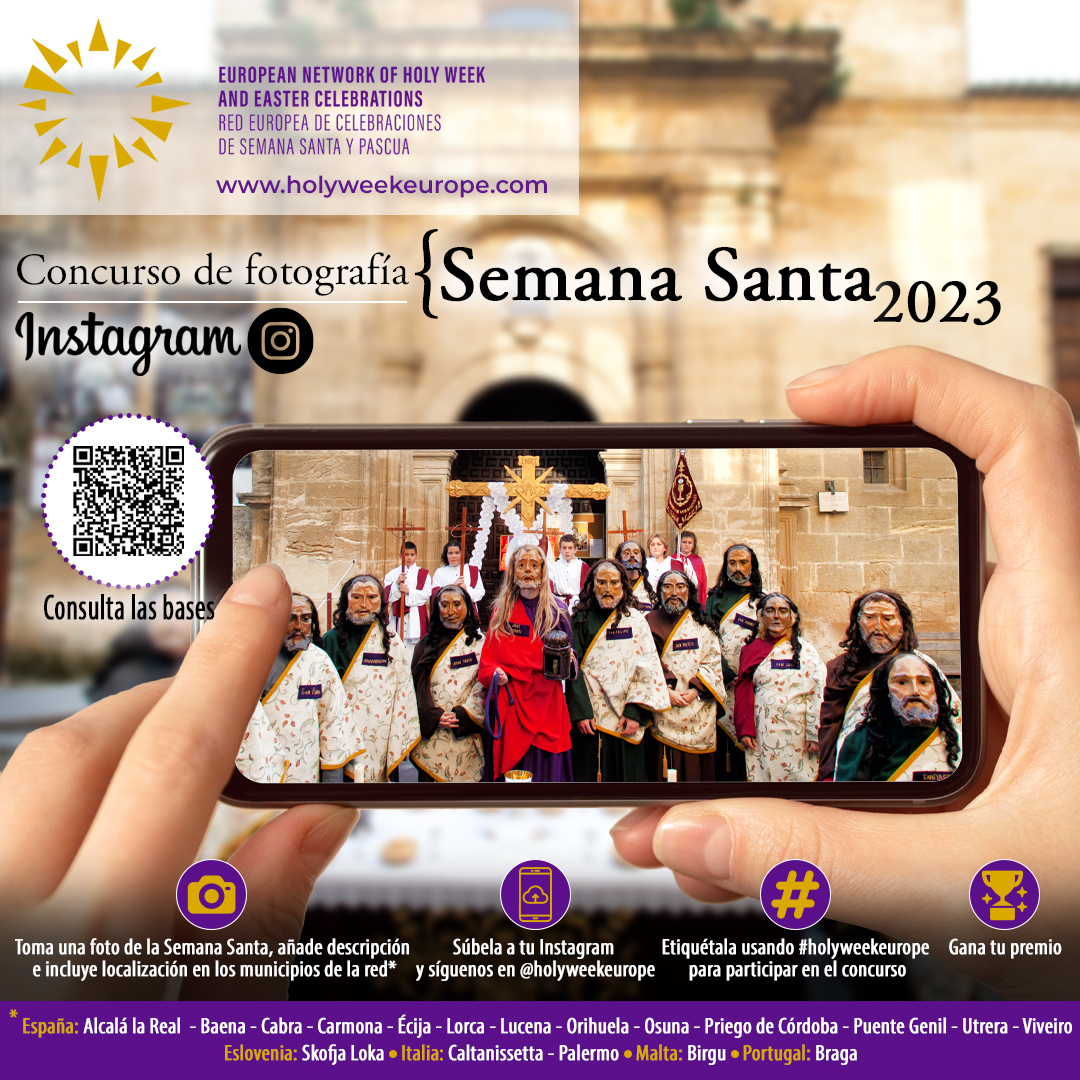
The II European Holy Week Conference ends successfully
07.03.2023.- The European Network of Holy Week and Easter Celebrations has successfully completed the celebration of its II European Conference of Holy Week which, under the title ‘From the Local to the Universal’, has been held on March 2 and 3 in the Palazzo Reale and Oratorio di Santa Elena e Costantino in Palermo, Sicily (Italy)
Organized by the European Network itself in collaboration with the Fondazione Federico II of Sicily (Italy), a partner of the Network, this edition of the Conference has been held for the first time face-to-face and has had the participation of 13 speakers from Italy, Spain, Slovenia and Romania, 21 communications have been presented in four sessions and more than 80 people have attended in virtual and face-to-face format. Likewise, representatives of the Italian Ministry of Culture, the Spanish Ministry of Culture and UNESCO have participated, as well as the presidents of the European Network of Holy Week and Easter Celebrations and of the Fondazione Federico II.
The conferences, whose Scientific Committee has been chaired by Professor Ignazio Buttitta and Julio Grande, have been organized based on conferences and round tables, developed by experts. Among the conclusions reached by the Scientific Committee, the following stand out:
- The Holy Week and Easter celebrations make up a rich repertoire of European intangible cultural heritage. They are widely distributed throughout the continent and currently maintains a notable validity.
- The carrier communities are key to the preservation of this heritage, as well as the custodians and continuators of these traditions.
- The Holy Week celebrations are a living heritage and in continuous adaptation. These adaptations are what guarantee its continuity over time. The role of the carrier communities is, in this sense, fundamental and it is up to them to pilot this process.
- Guaranteeing the continuity of these celebrations is a necessity with which we must all feel committed. The incorporation of young people to these celebrations is a priority. For this we must advance in new communication formulas that are capable of arousing the interest of the new generations. Schools can play a fundamental role in this process and it is necessary to advance in the development of new pedagogical tools that facilitate this task.
- Museums can also play a fundamental role in disseminating this heritage, both among schoolchildren and the youth population, as well as among the general public. They also facilitate a deseasonalization of the celebrations and have an important role in generating tourist activity. Working on programming, museological and museographic discourses and public programs must be a priority and object of study and work by all those involved in their management. The European Network can play an important role in favoring innovation and the development of joint actions in this field.
- Tourism is now an inseparable element of the celebrations. The universalization of tourist activity has made it a regular element of our social life. On the other hand, the economic repercussion in the territories has become an essential vector for many of them.
- There is therefore a permanent dialogue between tourism and celebrations that needs to be studied and analyzed in detail. Advancing in the study and research of this process may be one of the lines to be developed by the European Network.
- It is necessary to ensure the correct safeguarding of this heritage, and to analyze in depth the changes or conditions that tourism can generate in them. There are some aspects that need to be analyzed in depth, such as the seasonality of the celebrations, the commodification or the spectacularization of the celebrations, and that should be studied in depth.
- The declaration of the European Network of Holy Week and Easter Celebrations can be a boost for the dissemination and safeguarding of this heritage. In the same way, this declaration can allow a better knowledge of these rituals by the European population, a contribution to the promotion of more sustainable tourism models and a guarantee for the construction of their future.
Deepen into the European dimension of Holy Week
Holy Week and Easter celebrations are, without any doubt, one of the most vibrant expressions of popular religiosity in Europe. Their broad distribution, the variety of rituals and manifestations and the social involvement created around them make of them one of the subjects that generates more scientific, cultural and social interest.
The European Network of Holy Week and Easter Celebrations works tirelessly to preserve and share this rich heritage. In order to achieve this, it is necessary to perform analysis and research processes that contribute to improving the knowledge of these complex cultural processes and of their bearer communities.
The main aim of this European Congress is to delve into the diverse, as well as shared, European dimension of this heritage. The purpose is to show their reality and what Holy Week and Easter celebrations represent in Europe today, contributing to a better knowledge of the celebrations and to their preservation.
More about the European Network
The European Network of Holy Week and Easter celebrations was created in 2019 and is made up of the Italian Federico II Foundation, representing the municipalities of Palermo and Caltanissetta, in Sicily (Italy); the municipality of Birgu in Malta; the Commission for Lent and Holy Week Celebrations in Braga, in Portugal; the Representations of the Passion of Christ in Skofja Loka, Slovenia; the municipalities that are part of the Caminos de Pasión route: Alcalá la Real in Jaén, Baena, Cabra, Lucena, Priego de Córdoba and Puente Genil in Córdoba and Carmona, Écija Osuna and Utrera in Seville. Also within the Spanish geography we find Orihuela in Alicante; Lorca in Murcia and Viveiro in Lugo.
Its objective is to promote and disseminate cultural heritage, both tangible and intangible, related to the celebrations of Holy Week and Easter through actions that value this heritage, promote sustainable tourism development around it and contribute to the intangible heritage is safeguarded through scientific work and research. In the same way, its main purpose is to combine efforts and synergies to consolidate a model for the study, safeguarding and dissemination of the heritage of the traditions of Holy Week and Easter in Europe.



